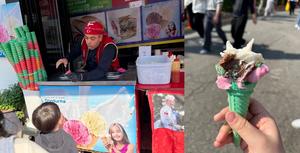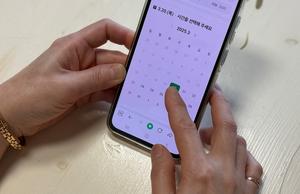 |
| ▲ From left, a photo taken by Kyungnam University's insurance company and Changwon University's newspaper company (Source: Gyeongnam Ilbo) |
In June, the Gyeongnam Ilbo presented the first collaboration planning article between local university student reporters and local media in Gyeongnam under the title of "With University Press." The Gyeongnam llbo, which was selected as the "2024 Regional Newspaper Development Fund Priority Support Target" and received government subsidies, proposed collaboration with the Kyungnam University Insurance Company and Changwon University Newspaper Company.
Accordingly, Kyungnam University will report four articles each from the perspective of university reporters on the regional "crisis of university academic history" and Changwon University Newspaper will report a total of eight articles on "local multiculturalism." Thus far, two articles have been released by each academic journalist. In order to hear more about the collaboration project, we met with Cho Soo-min, the editor- in- chief of Changwon University Newspaper, and Won Ji-hyun, the editor- in- chief of Kyungnam University Newspaper and conducted an interview.
Q. With what topics and composition did you proceed with for the four projects?
Cho: There have been discussions about multiculturalism before, but we decided to cover the multiculturalism of Changwon because we thought readers might not know how people from that specific community background are actually living. We plan to start with the stories of elementary school students in Changwon, listen to the stories of college students and workers in turn, and then wrap up with a meeting together.
Won: The crisis in the university press is an old problem. We think both journalists and readers are declining, especially in the case of local university media. Thus far, our article has included not only the stories of Kyungnam University students, but also the stories of other local students and the media of universities in the metropolitan area. In the remaining articles, we plan to tell the stories of alternative media focused on photography, video, and the organizations that try to cover them, concluding with a face- to- face meeting with university journalists.
Q. What were your expectations of this collaboration, and what did you actually gain?
Cho: During the meeting to set the main theme of the project, I felt that we could find ample information on social issues such as multiculturalism and students with disabilities within the school system. It was also meaningful to be able to communicate directly with professional reporters and get corrected. I have gained confidence in my new attempts to use youthful colloquialism and literary expression.
Won: I was able to have a serious and responsible mindset again when I was working on the article. There are moments when I feel complacent while writing an article. However, at the moment I went to meet an interviewer outside of school for this coverage, I felt afraid, and I had a new experience by trying to contact journalists from other universities. Also, the idea of paying more attention to the local agenda has become stronger.
Q. What do you think are the strengths and weaknesses of the university student journalist and student media, that you felt in collaboration with the established media in your area?
Cho: I think it's a clear advantage of a college reporter to be able to write any article and to be able to write an article together if I can persuade local reporters on the suggestion, "Why don't we do this?" Although there are many shortcomings in the composition of the article due to poor professionalism, I think there are advantages arising from the guarantee of autonomy.
Won: The university press is the closest to an institution called a university, therefore, it can capture relevant content vividly. However, I think it is an advantage and a disadvantage that the view and tone of the article can change as the editor- in- chief and members change every year.
This collaboration is an example of synergy between local university media and established media in our local society. In particular, it became a valuable experience for students who began their journalism activities with an interest and passion for writing to meet various people and to learn the ways of the world. It is hoped that the voices of local university students will gain greater strength and move forward in the future.
By Kim So-ha, reporter lucky.river16@gmail.com
<저작권자 © The Campus Journal, 무단 전재 및 재배포 금지>

 KTX Fares to Increase; First Time in 14 Years: Is it an Inevitable Decision
KTX Fares to Increase; First Time in 14 Years: Is it an Inevitable Decision


![[Feature] Successful Robot Dunk Shot: Can Korea Seize the Opportunity to Narrow the Technological Gap?](/news/thumbnail/202503/4113287_1940_2236_v150.jpg)

